There are many animals in nature that have become disguised. This refers to their ability to adapt to the environment (survival strategy) or their innate characteristics. Although the former takes time to practice and improve, the latter has the innate benefit of these species. They know how to use it, easily but effectively.
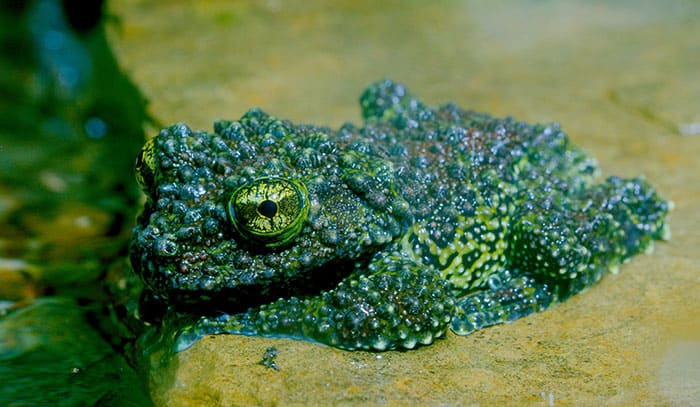
This is the case with the Vietnamese moss frog (Theloderma corticale). The skin of strange creatures is green with black spots and visible tuberculosis and spinal cord. All of these features help to reduce the risk of being caught by predators and increase the chances of prey. It is easy for them to get into the muddy and muddy environment.
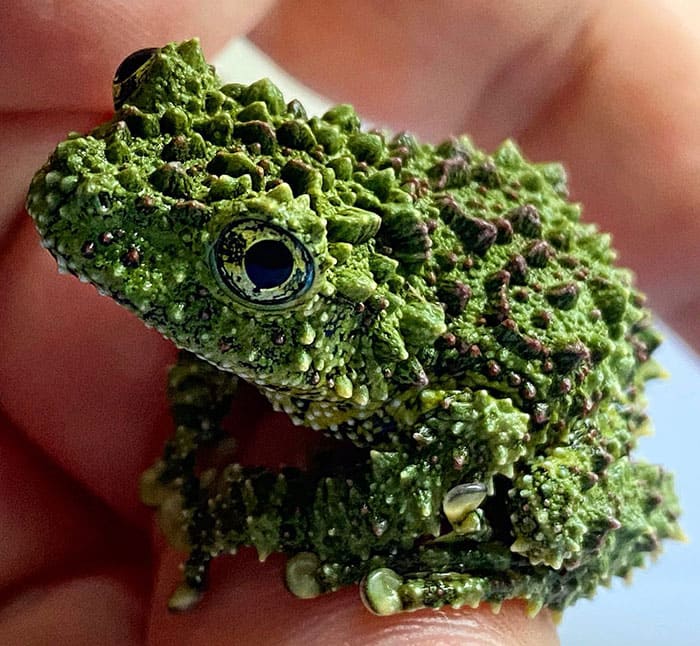
Another thing that makes these frogs masters is their loud voices. They can raise their voice 10 to 13 feet (3 to 4 meters). It is very difficult to find them in the forest.
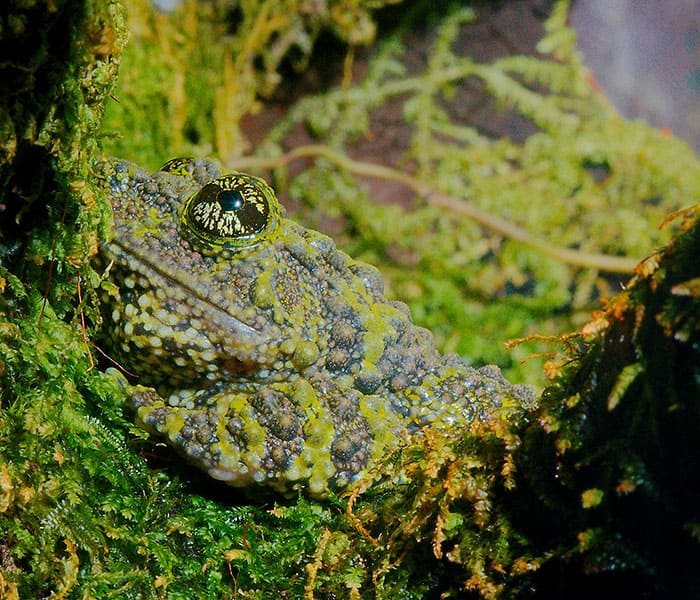
As its name suggests, the Vietnamese moss frog belongs to Vietnam, where it usually lives in the northern region. They are also found in the evergreen rainforests and sub-tropical forests of South Asia.
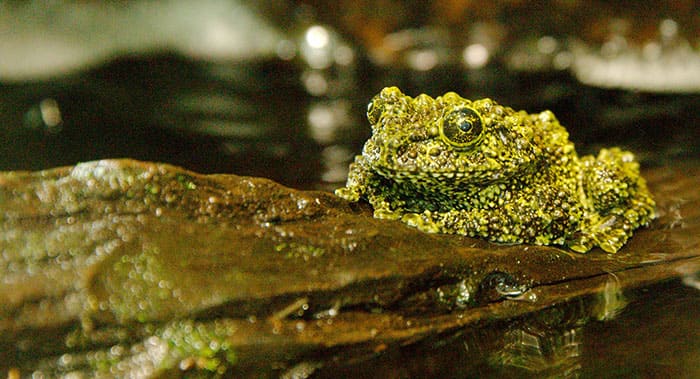
These green frogs prefer to live in flooded caves and on rocky mountain rivers at an altitude of 2,300 to 3,280 feet. They are active at night.
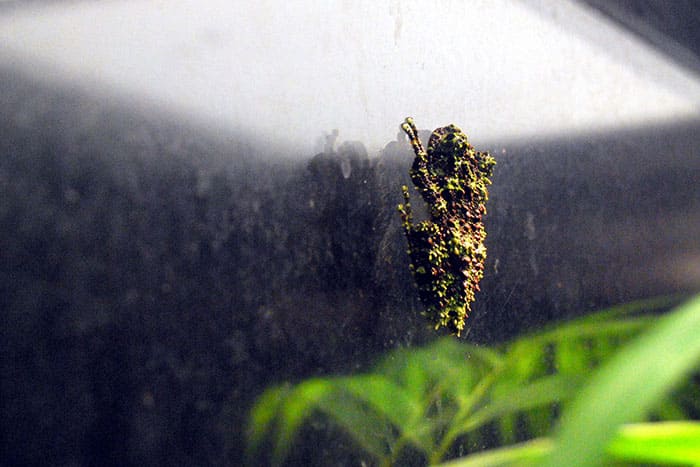
This breed grows up to 3.5 inches (7 to 8 cm) and can live up to ten years. Interestingly, males are smaller and thinner than females.
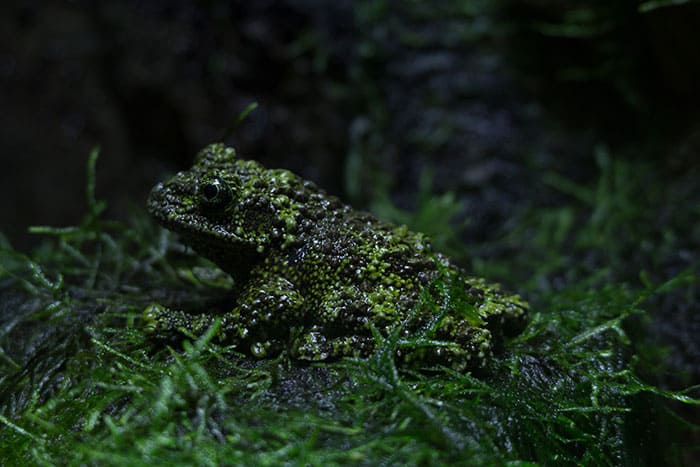
As for food, these frogs prey on large insects such as cricket and cockroaches.
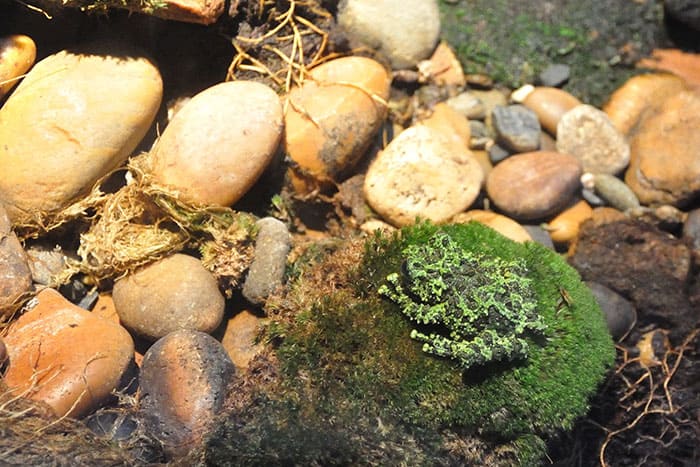
Vietnamese Mossy Frog
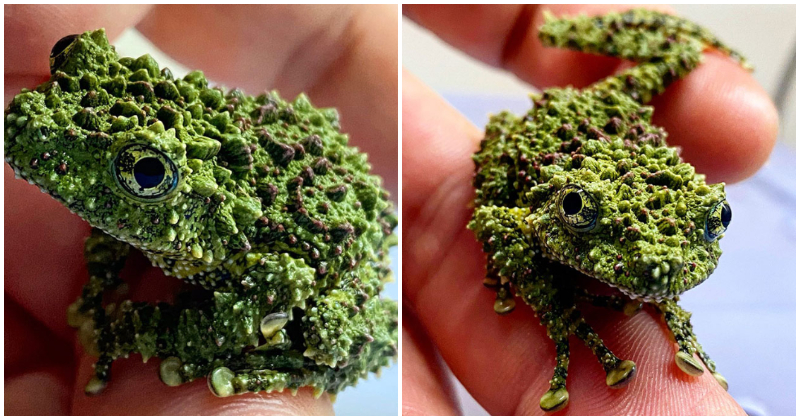
H/T: Smithsonian’s National Zoo
Read Also: Footprints of an endangered tiger have been found in northeastern Siberia for 50 years





